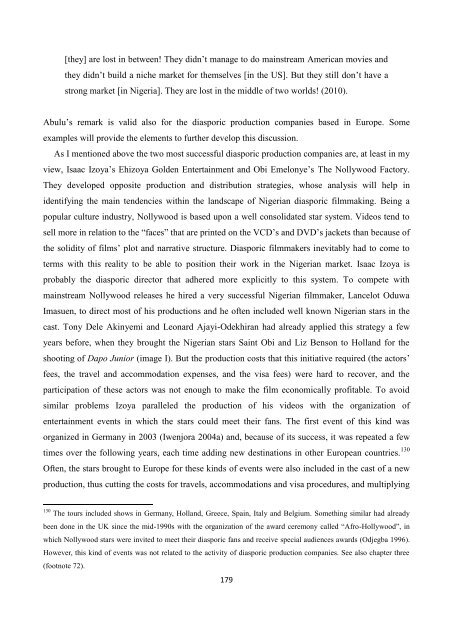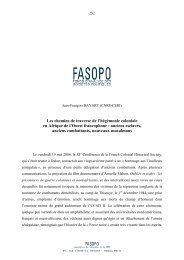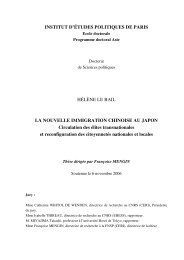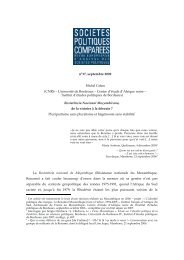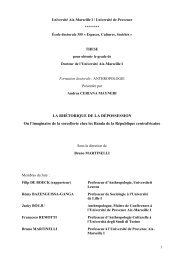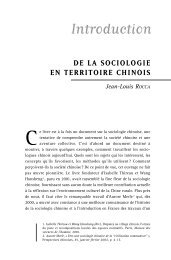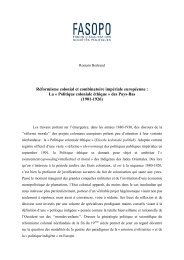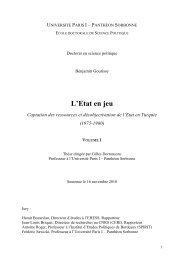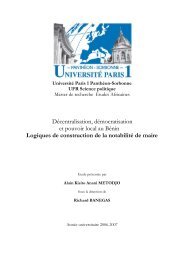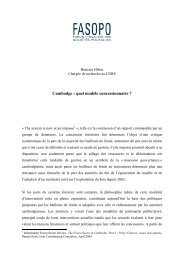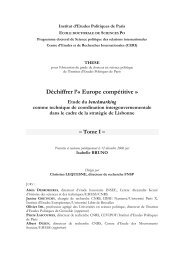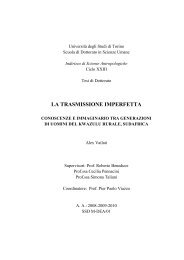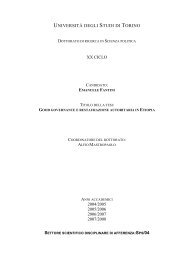You also want an ePaper? Increase the reach of your titles
YUMPU automatically turns print PDFs into web optimized ePapers that Google loves.
[they] are lost in between! They didn’t manage to do mainstream American movies andthey didn’t build a niche market for themselves [in the US]. But they still don’t have astrong market [in Nigeria]. They are lost in the middle of two worlds! (2010).Abulu’s remark is valid also for the diasporic production companies based in Europe. Someexamples will provide the elements to further develop this discussion.As I mentioned above the two most successful diasporic production companies are, at least in myview, Isaac Izoya’s Ehizoya Golden Entertainment and Obi Emelonye’s The Nollywood Factory.They developed opposite production and distribution strategies, whose analysis will help inidentifying the main tendencies within the landscape of Nigerian diasporic filmmaking. Being apopular culture industry, Nollywood is based upon a well consolidated star system. Videos tend tosell more in relation to the “faces” that are printed on the VCD’s and DVD’s jackets than because ofthe solidity of films’ plot and narrative structure. Diasporic filmmakers inevitably had to come toterms with this reality to be able to position their work in the Nigerian market. Isaac Izoya isprobably the diasporic director that adhered more explicitly to this system. To compete withmainstream Nollywood releases he hired a very successful Nigerian filmmaker, Lancelot OduwaImasuen, to direct most of his productions and he often included well known Nigerian stars in thecast. Tony Dele Akinyemi and Leonard Ajayi-Odekhiran had already applied this strategy a fewyears before, when they brought the Nigerian stars Saint Obi and Liz Benson to Holland for theshooting of Dapo Junior (image I). But the production costs that this initiative required (the actors’fees, the travel and accommodation expenses, and the visa fees) were hard to recover, and theparticipation of these actors was not enough to make the film economically profitable. To avoidsimilar problems Izoya paralleled the production of his videos with the organization ofentertainment events in which the stars could meet their fans. The first event of this kind wasorganized in Germany in 2003 (Iwenjora 2004a) and, because of its success, it was repeated a fewtimes over the following years, each time adding new destinations in other European countries. 130Often, the stars brought to Europe for these kinds of events were also included in the cast of a newproduction, thus cutting the costs for travels, accommodations and visa procedures, and multiplying130 The tours included shows in Germany, Holland, Greece, Spain, Italy and Belgium. Something similar had alreadybeen done in the UK since the mid-1990s with the organization of the award ceremony called “Afro-Hollywood”, inwhich Nollywood stars were invited to meet their diasporic fans and receive special audiences awards (Odjegba 1996).However, this kind of events was not related to the activity of diasporic production companies. See also chapter three(footnote 72).179


